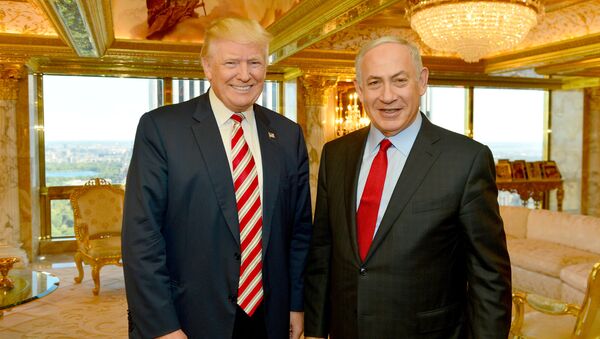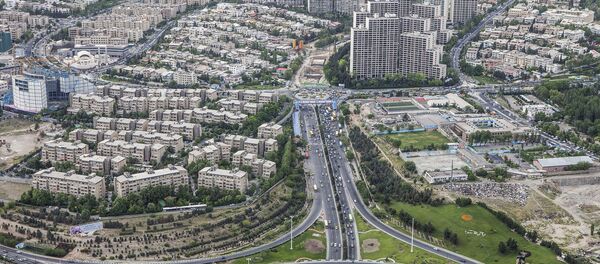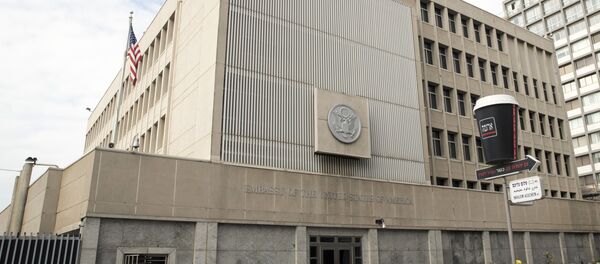Iran
The US administration will take additional steps to ensure Iran has no way to obtain a nuclear weapon, President Donald Trump said.
"My administration has already imposed new sanctions on Iran, and I will do more to prevent Iran from ever developing a nuclear weapon," Trump stated.
On February 3, the administration of US President Donald Trump imposed sanctions against 25 individuals and entities based in Iran, Lebanon, the United Arab Emirates and China for allegedly supporting Tehran's ballistic missile program after its latest medium-range ballistic missile test on January 29. The United States considers the test as a violation of the Joint Comprehensive Plan of Action (JCPOA) and the UN Security Council resolution calling on Iran to refrain from nuclear-capable missile activity.
Netanyahu praised the efforts of Trump to challenge Iran over its ballistic missile test.
"President Trump has led a very important effort in the past few weeks just coming into the presidency. He pointed out their violations, Iranian violations and ballistic missile test," Netanyahu said.
Netanyahu added, "I think that’s a change that is clearly evident since President Trump took office. I welcome that."
Trump has also opposed the 2015 nuclear deal with Iran and stated he would review it.
The US president included Iran in the list of seven predominantly Muslim countries whose citizens were temporarily banned from entering the United States.
Israel and Palestine
The United States remains committed to working toward achieving a peace accord between Israel and Palestine to ensure stability in the region, Trump said.
"Our administration is committed to working with Israel and our common allies in the region toward greater security and stability. That includes working toward a peace agreement between Israel and the Palestinians. The United States will encourage a peace and really a great peace deal," Trump stated.
Trump added that as with any other successful negotiation, "both sides would have to find compromises."
The Palestinians should in turn get rid of "some of that hate that they are taught from very young age" and acknowledge Israel, Trump noted.
Netanyahu stressed that in order to achieve the agreement with Palestine, both parties have to look for fresh ideas on how to resolve the dispute.
"I believe that the great opportunity for peace comes from a regional approach, from involving our new-found partners in the pursuit of a broader peace and peace with the Palestinians," the Israeli leader said.
Netanyahu assured that the remarkably strong partnership with the United States would get even more productive in the future.
"I can live with either one," Trump stated commenting on the possibility of one- or two-state solutions of the Israeli-Palestinian conflict. "I like the one that both parties like."
"As far as settlements, I would like to see you hold back on settlements for a little bit. We will work something out…I think a deal will be made," Trump said.
After the Six Day War in 1967, Israel seized the West Bank, Gaza Strip, Golan Heights and Sinai Peninsula.
Palestinians seek diplomatic recognition for their independent state on the territories of the West Bank, including East Jerusalem, which is partially occupied by Israel, and the Gaza Strip. Israel has been building settlements on the occupied territories despite objection from the United Nations.
"As far as the embassy moving to Jerusalem, I’d love to see that happen. We are looking at it very strongly. We are looking at it with great care, believe me. And we’ll see what happens," Trump stated.
Israel recognizes whole Jerusalem as its capital while the international community considers the eastern part of the city as an occupied Palestinian territory.
In 1995, the US Congress passed a law which required the American embassy to be moved from Tel Aviv to Jerusalem, but the move has not been made yet.
During his presidential campaign, Trump promised that his administration would move the US embassy to Jerusalem. The statement was criticized by Palestinian President Mahmoud Abbas, who said that such decision would not promote peace in the region.




